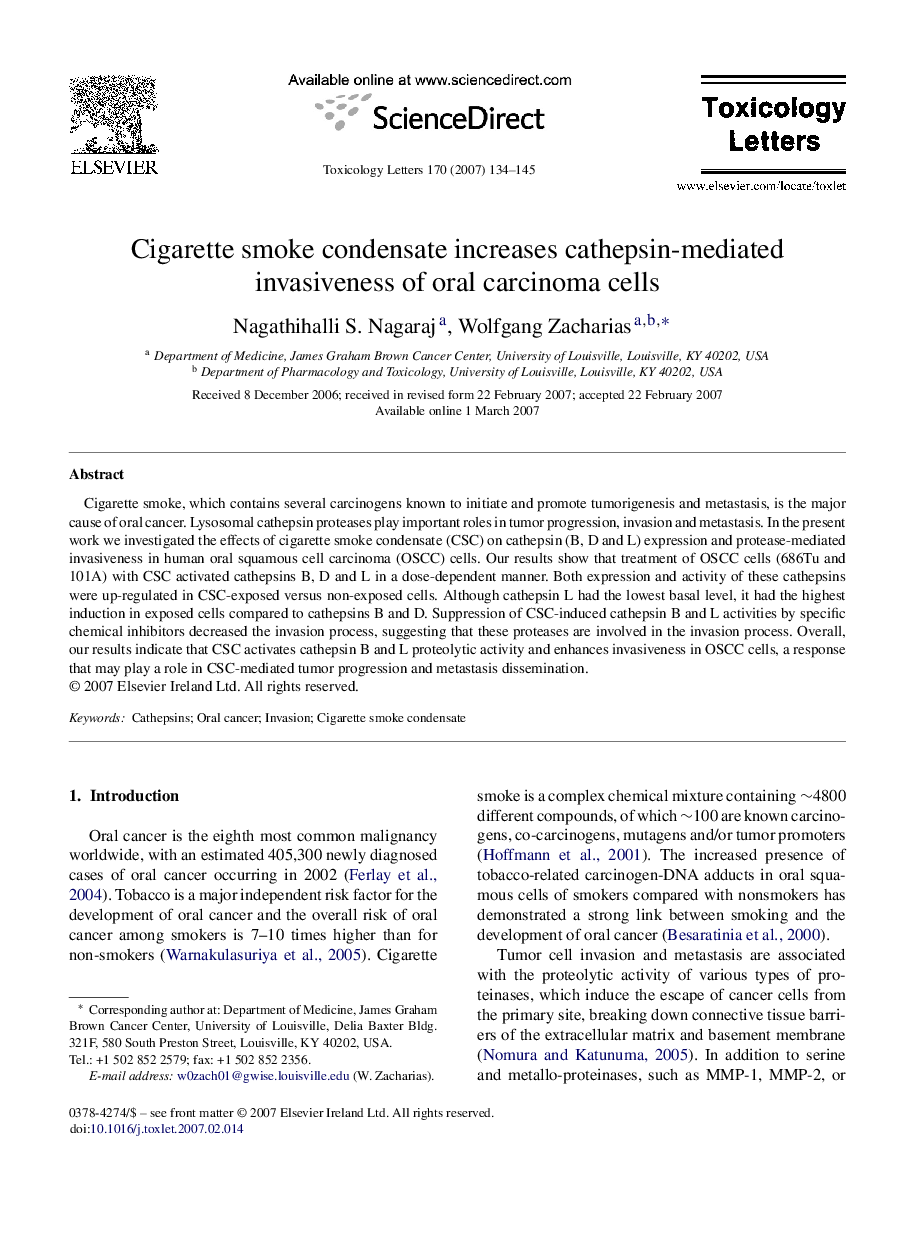| Article ID | Journal | Published Year | Pages | File Type |
|---|---|---|---|---|
| 2602252 | Toxicology Letters | 2007 | 12 Pages |
Cigarette smoke, which contains several carcinogens known to initiate and promote tumorigenesis and metastasis, is the major cause of oral cancer. Lysosomal cathepsin proteases play important roles in tumor progression, invasion and metastasis. In the present work we investigated the effects of cigarette smoke condensate (CSC) on cathepsin (B, D and L) expression and protease-mediated invasiveness in human oral squamous cell carcinoma (OSCC) cells. Our results show that treatment of OSCC cells (686Tu and 101A) with CSC activated cathepsins B, D and L in a dose-dependent manner. Both expression and activity of these cathepsins were up-regulated in CSC-exposed versus non-exposed cells. Although cathepsin L had the lowest basal level, it had the highest induction in exposed cells compared to cathepsins B and D. Suppression of CSC-induced cathepsin B and L activities by specific chemical inhibitors decreased the invasion process, suggesting that these proteases are involved in the invasion process. Overall, our results indicate that CSC activates cathepsin B and L proteolytic activity and enhances invasiveness in OSCC cells, a response that may play a role in CSC-mediated tumor progression and metastasis dissemination.
